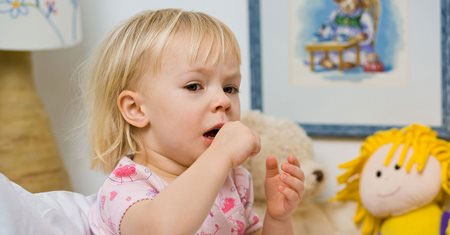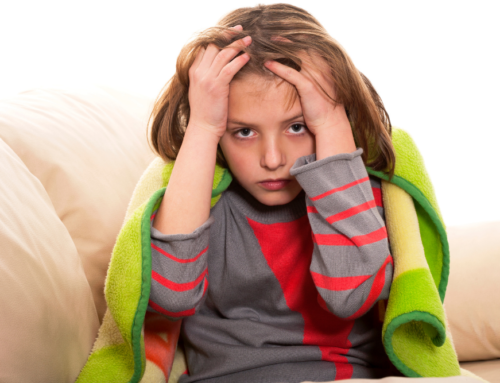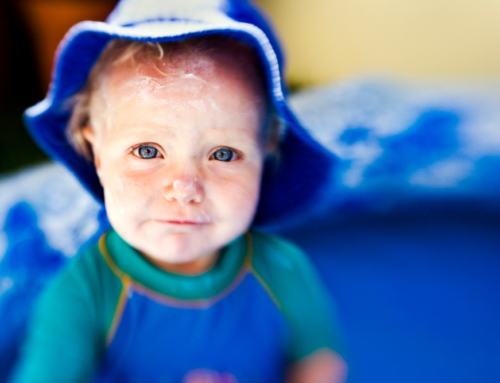- Rest
- Adequate fluid intake
- Over-the-counter nasal decongestants, expectorants (to help remove mucus from the airways), cough suppressants, pain relievers and fever reducers as needed for symptom relief
- Vitamin C to help the body fight the infection
- Room humidifier and salt water swishing to help with symptom relief
However, in some cases, a cold can lead to other conditions, including:
- Sinus infection
- Ear infection
- Bronchitis
- Asthma attack
- Laryngitis
- Epiglottitis
In rare cases, more serious complications such as respiratory failure or respiratory arrest can occur. So, while using the treatments above for their children, parents should monitor their progress and contact their pediatrician if the condition lingers or worsens.
Avoiding the Common Cold
URIs are easily passed from one person to another through breathing of pathogens that are sneezed or coughed into the air by someone who is ill. Children can also catch a cold by touching an object that has cold virus particles or bacteria on it and then touching their mouth, nose or eyes. Consequently, avoiding the common cold is very difficult. But, there are practices that can help minimize a child’s risk of getting a cold, including:
- Keeping them away from people who are sick
- Regularly cleaning surfaces in the home where viruses can be spread such as door handles, the TV remote, etc.
- Frequent hand washing
- Encouraging the child and others to sneeze into their bent elbow
- Eating healthy meals and getting plenty of sleep to support the immune system
These practices are helpful year round, but are especially important during the winter months when colds are more prevalent.
Cold or Something More? Get Advice From Your Pediatrician.
If you have questions or concerns about your child’s upper respiratory infection, you should talk with a pediatrician at Mountainland Pediatrics. We can provide guidance on any testing or treatment we feel is necessary and give you the peace of mind that you have a partner in helping your child get well. Contact us at (303) 430-0823.

 What is technically called an upper respiratory infection or URI is more often referred to as the common cold. This condition is typically caused by a virus, but can also be caused by bacteria, and produces symptoms that can include a runny nose, nasal congestion, sneezing, coughing, sore throat, fever, headaches, earaches and fatigue. URIs tend to resolve without medical treatment within 5-10 days. However, they can lead to complications. Consequently, if a child’s condition doesn’t improve fairly rapidly, it is important to talk with your pediatrician.
What is technically called an upper respiratory infection or URI is more often referred to as the common cold. This condition is typically caused by a virus, but can also be caused by bacteria, and produces symptoms that can include a runny nose, nasal congestion, sneezing, coughing, sore throat, fever, headaches, earaches and fatigue. URIs tend to resolve without medical treatment within 5-10 days. However, they can lead to complications. Consequently, if a child’s condition doesn’t improve fairly rapidly, it is important to talk with your pediatrician.

